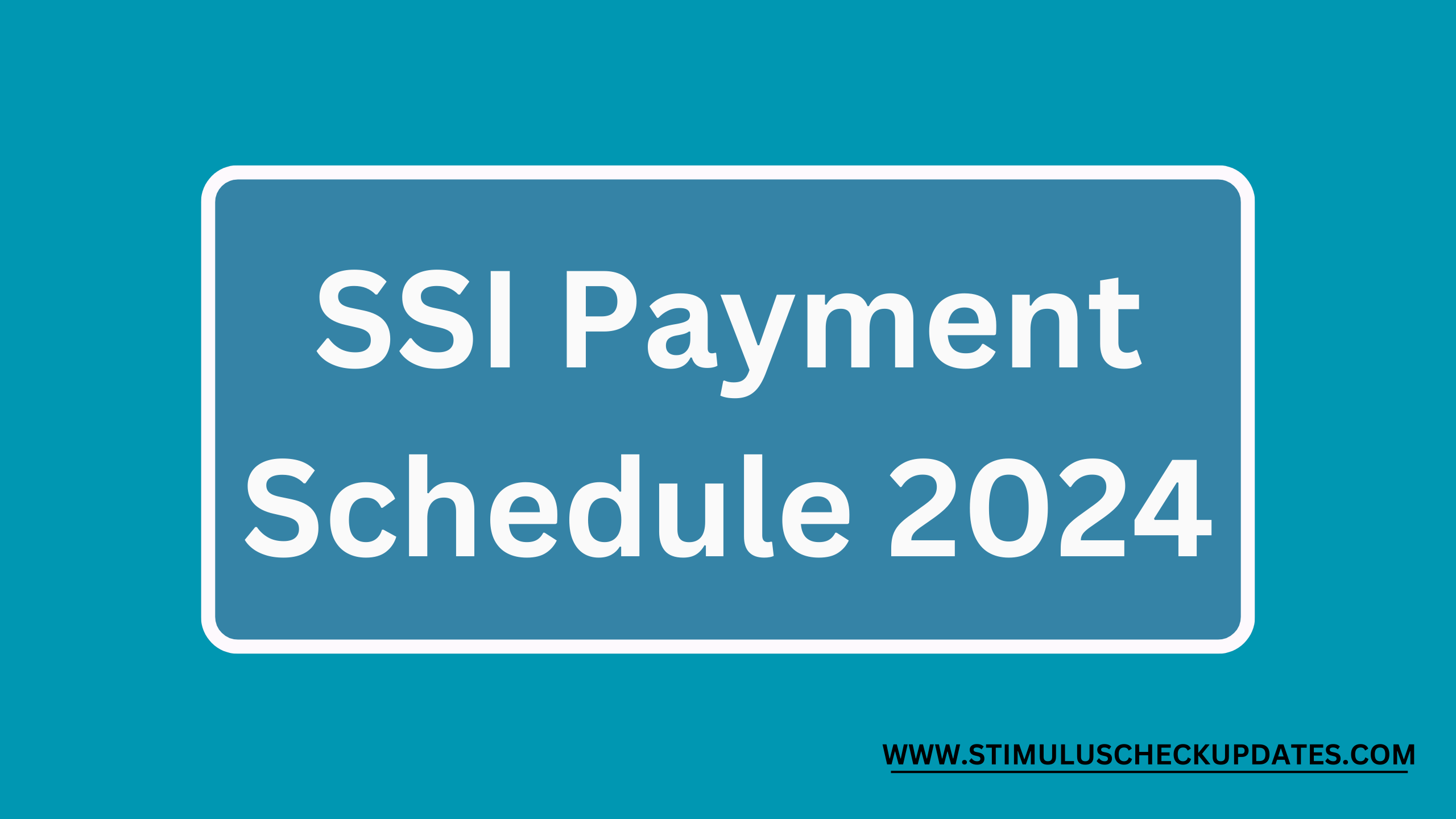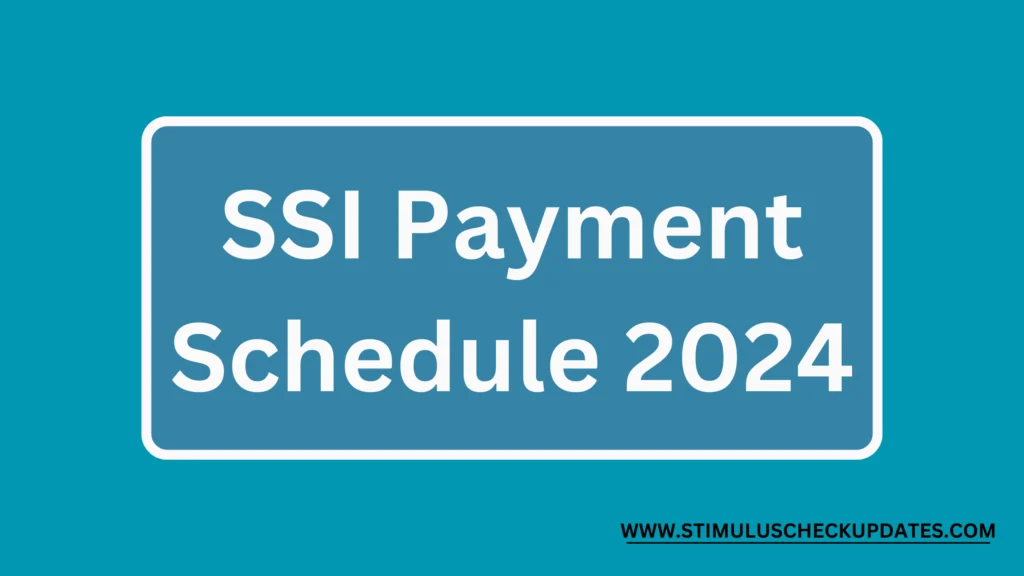Are you waiting for the SSI January 31 advance payment? Well, hold on to your hats because there’s a lot to unpack here. Supplemental Security Income (SSI) is one of those lifelines that millions of Americans rely on, and understanding how the payment schedule works can make all the difference. If you’re curious about what this advance payment means and how it affects you, we’ve got you covered. So, let’s dive right in!
Let’s be real—money matters can get stressful, especially when you’re counting on a specific date for your SSI check. Whether you’re a long-time recipient or just starting out, knowing the ins and outs of the SSI payment system is crucial. January 31 is a special day for some beneficiaries because of the advance payment option. But what exactly does that mean? Is it a bonus? A mistake? Or just a regular part of the process? Stick around, and we’ll break it down for you.
Now, before we go any further, it’s important to remember that SSI isn’t just about the money. It’s about ensuring financial stability for individuals who need it most. The Social Security Administration (SSA) has a pretty solid system in place, but sometimes things can get a little confusing. That’s why we’re here—to simplify the process and give you the lowdown on everything related to the SSI January 31 advance payment. Let’s get started!
Read also:Unveiling The Truth Behind Angelferrnandezzz Leak What You Need To Know
What is SSI and Why Does It Matter?
First things first, let’s talk about what SSI actually is. Supplemental Security Income, or SSI, is a federal program designed to help people with limited income and resources. This includes folks who are elderly, blind, or disabled. Unlike Social Security Retirement Benefits, SSI is based on financial need rather than work history. In short, it’s a safety net for those who might otherwise struggle to make ends meet.
Here’s the deal: SSI payments are usually made on the first day of each month. However, if the 1st falls on a weekend or holiday, the payment gets pushed to the nearest business day. And that’s where the January 31 advance payment comes into play. For some beneficiaries, this early payment can be a game-changer, especially during the holiday season when expenses tend to pile up.
Why is the January 31 Advance Payment Important?
Now, let’s focus on the star of the show—the SSI January 31 advance payment. This payment is essentially a head start for recipients who would normally receive their checks on February 1st. Since February 1st falls on a weekend or holiday every few years, the SSA steps in and moves the payment date up to the last business day of January. It’s like getting an early birthday present, but instead of presents, it’s cash!
But why does this matter? Well, for starters, it gives recipients a little extra breathing room at the beginning of the year. Bills don’t take holidays, and having that extra time to plan your finances can make a huge difference. Plus, it’s always nice to start the new year with a little extra cushion in your bank account.
How Does the Advance Payment Work?
Alright, so you know what the SSI January 31 advance payment is, but how does it actually work? The SSA follows a pretty straightforward schedule when it comes to disbursing funds. If the 1st of the month falls on a weekend or holiday, they automatically move the payment date to the nearest business day. In the case of January 31, this means that beneficiaries will receive their February payment a day earlier than usual.
For those of you who receive your SSI payments via Direct Deposit, the money should hit your account on January 31. If you’re still using paper checks, you’ll need to keep an eye out for the mail. Either way, it’s a win-win situation because you’re getting your money sooner rather than later.
Read also:Katt Williams And His Wife Exploring Life Beyond The Spotlight
Who Qualifies for the SSI January 31 Advance Payment?
This is probably the question on everyone’s mind—am I eligible for the SSI January 31 advance payment? The good news is that if you’re already receiving SSI benefits, you don’t need to do anything special to qualify for this early payment. It’s automatically included in your regular disbursement schedule. However, there are a few things to keep in mind.
First, you must be an active SSI recipient. If you’ve recently applied for benefits but haven’t been approved yet, you won’t be eligible for the advance payment. Second, your payment method (Direct Deposit or paper check) can affect when you receive your funds. Lastly, if you’ve had any recent changes to your circumstances, such as a move or a change in income, make sure to update the SSA promptly to avoid delays.
Key Factors That Affect Eligibility
- Active SSI recipient status
- Payment method (Direct Deposit or paper check)
- Recent changes in circumstances
- Approval status for new applicants
It’s always a good idea to double-check with the SSA if you’re unsure about your eligibility. They’re there to help, and it’s better to ask questions now than to miss out on a payment later.
Understanding the Payment Schedule
Now that we’ve covered the basics, let’s talk about the SSI payment schedule. As we mentioned earlier, payments are typically made on the first day of each month. But what happens when that day falls on a weekend or holiday? That’s where the advance payment comes in. By moving the payment date up to the nearest business day, the SSA ensures that beneficiaries don’t have to wait an extra day or two to access their funds.
Here’s a quick breakdown of the payment schedule:
- Regular payment date: First day of the month
- Advance payment date: Nearest business day if the 1st falls on a weekend or holiday
- Direct Deposit: Funds available on the scheduled payment date
- Paper checks: Mailed on the scheduled payment date
It’s worth noting that the payment schedule can vary slightly depending on your specific circumstances. If you’re ever unsure about when to expect your payment, the SSA’s website is a great resource for up-to-date information.
Common Questions About Payment Dates
Let’s address some of the most common questions about SSI payment dates:
- Will I always receive my payment on the 1st of the month? Not necessarily—if the 1st falls on a weekend or holiday, the payment will be moved to the nearest business day.
- What if I don’t receive my payment on time? Contact the SSA immediately to report the issue. They’ll work with you to resolve any delays.
- Can I change my payment method? Yes! You can switch between Direct Deposit and paper checks at any time. Just be sure to give the SSA enough notice to process the change.
These questions might seem simple, but they’re important to keep in mind as you navigate the SSI system.
How to Prepare for the SSI January 31 Advance Payment
Now that you know when to expect your payment, it’s time to start preparing. Whether you’re using Direct Deposit or paper checks, there are a few steps you can take to ensure a smooth process:
- Verify your bank account information if you use Direct Deposit
- Keep an eye on your mailbox if you receive paper checks
- Review your budget to make the most of your advance payment
- Reach out to the SSA if you have any questions or concerns
Preparation is key, especially when it comes to managing your finances. By staying organized and informed, you can avoid unnecessary stress and make the most of your SSI benefits.
Tips for Managing Your SSI Benefits
Here are a few tips to help you manage your SSI benefits more effectively:
- Create a monthly budget to track your income and expenses
- Set aside a portion of your payment for emergencies
- Explore additional resources, such as food assistance programs
- Stay informed about changes to the SSI program
Remember, SSI is just one piece of the financial puzzle. By taking advantage of other resources and planning ahead, you can create a more stable and secure future for yourself.
Common Misconceptions About SSI Payments
There are a lot of myths floating around about SSI payments, and it’s important to separate fact from fiction. Here are a few common misconceptions:
- Myth: SSI payments are taxed like regular income. Fact: SSI payments are not subject to federal income tax.
- Myth: You can only receive SSI if you’re completely unable to work. Fact: Some beneficiaries may still be able to work part-time while receiving benefits.
- Myth: SSI payments are the same for everyone. Fact: Payment amounts vary based on factors like income, resources, and state supplements.
By understanding the truth about SSI payments, you can make more informed decisions about your benefits.
How to Avoid Scams and Fraud
Unfortunately, scammers often target SSI recipients, so it’s important to stay vigilant. Here are a few red flags to watch out for:
- Someone claiming to be from the SSA asking for your Social Security number
- Offers of “special” SSI payments in exchange for a fee
- Unsolicited calls or emails promising to increase your benefits
If you encounter any of these situations, report them to the SSA immediately. Protecting your personal information is crucial, and the SSA is there to help if you ever feel unsure.
The Future of SSI Payments
As we look ahead, it’s important to consider the future of SSI payments. With advancements in technology and changes in government policy, the program is likely to evolve in the coming years. For example, more recipients may transition to electronic payment methods, and there could be updates to the eligibility criteria.
Staying informed about these changes is essential for anyone relying on SSI benefits. By keeping up with the latest news and updates, you can ensure that you’re always in the know about your financial situation.
What Can You Do Now?
Here are a few steps you can take today to prepare for the future:
- Sign up for electronic notifications from the SSA
- Stay updated on legislative changes that could affect SSI
- Explore additional resources and support systems
- Reach out to your local SSA office for personalized assistance
By taking these proactive steps, you can stay ahead of the curve and make the most of your SSI benefits.
Conclusion: Take Action Today
So, there you have it—everything you need to know about the SSI January 31 advance payment. From understanding the basics of SSI to preparing for the future, this guide has covered all the essentials. Remember, knowledge is power, and the more you know about your benefits, the better equipped you’ll be to manage your finances.
Now, here’s the fun part—what’s next? We encourage you to take action today by reviewing your payment schedule, updating your information with the SSA, and exploring additional resources. And don’t forget to share this article with anyone you think might benefit from it. Together, we can make a difference in the lives of SSI recipients everywhere!
Table of Contents
- What is SSI and Why Does It Matter?
- Why is the January 31 Advance Payment Important?
- How Does the Advance Payment Work?
- Who Qualifies for the SSI January 31 Advance Payment?
- Understanding the Payment Schedule
- How to Prepare for the SSI January 31 Advance Payment
- Common Misconceptions About SSI Payments
- The Future of SSI Payments
- Conclusion: Take Action Today


